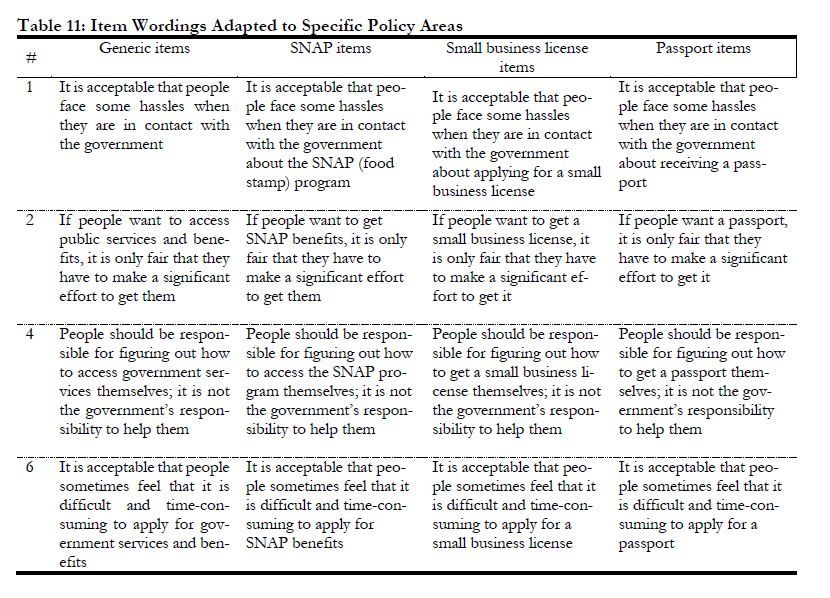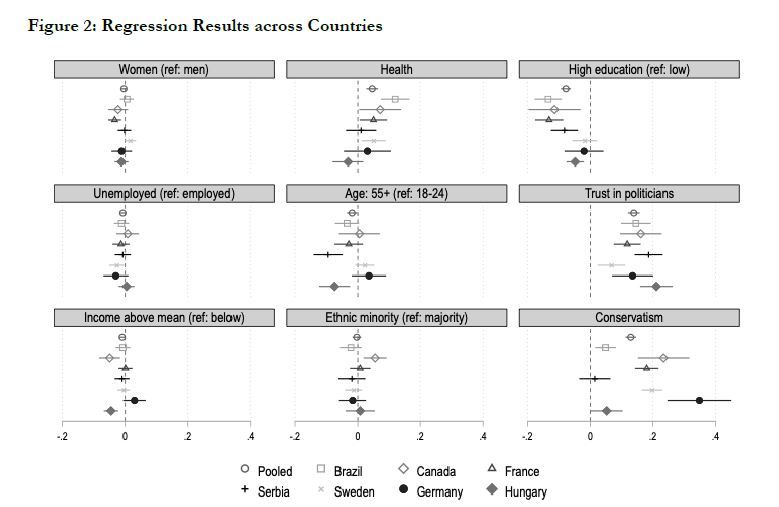Martin Bækgaard
@martinbaekgaard.bsky.social
Political scientist at Aarhus University, Denmark.
Many thanks, Mathias - greatly appreciated!
December 9, 2024 at 8:01 AM
Many thanks, Mathias - greatly appreciated!
Overall, our findings suggest that the effects of ALMPs are lasting, but at the same time greatly depend on how they fit with the resources of clients.
December 6, 2024 at 8:56 AM
Overall, our findings suggest that the effects of ALMPs are lasting, but at the same time greatly depend on how they fit with the resources of clients.
However, we find no employment effects among the less resourceful recipients of social assistance. Here instead we find negative long-run effects on indicators of mental health. These are entirely driven by clients who already prior to the trial had mental health issues.
December 6, 2024 at 8:56 AM
However, we find no employment effects among the less resourceful recipients of social assistance. Here instead we find negative long-run effects on indicators of mental health. These are entirely driven by clients who already prior to the trial had mental health issues.
Using evidence from randomized controlled trials, we find that more frequent compulsory meetings with case workers and early activation led to increased labor market participation among resourceful recipients of unemployment insurance benefits even 10 years after the interventions.
December 6, 2024 at 8:56 AM
Using evidence from randomized controlled trials, we find that more frequent compulsory meetings with case workers and early activation led to increased labor market participation among resourceful recipients of unemployment insurance benefits even 10 years after the interventions.
And find that our generic scale correlates highly with the tolerance for burdens in a variety of domains. Conservative beliefs are positively related to burden tolerance (though to different degrees) regardless of domain

April 5, 2024 at 7:34 AM
And find that our generic scale correlates highly with the tolerance for burdens in a variety of domains. Conservative beliefs are positively related to burden tolerance (though to different degrees) regardless of domain
We demonstrate how to adapt the scale to specific policy areas

April 5, 2024 at 7:33 AM
We demonstrate how to adapt the scale to specific policy areas
We examine correlates of the scale: Tolerance is higher among males, young adults, less well educated, those with good health, those who trust state actors more, and ideological conservatives.

April 5, 2024 at 7:32 AM
We examine correlates of the scale: Tolerance is higher among males, young adults, less well educated, those with good health, those who trust state actors more, and ideological conservatives.
And find that our generic scale correlates highly with the tolerance for burdens in a variety of domains. Conservative beliefs are positively related to burden tolerance (though to different degrees) regardless of domain

April 5, 2024 at 7:28 AM
And find that our generic scale correlates highly with the tolerance for burdens in a variety of domains. Conservative beliefs are positively related to burden tolerance (though to different degrees) regardless of domain
We demonstrate how to adapt the scale to specific policy areas

April 5, 2024 at 7:26 AM
We demonstrate how to adapt the scale to specific policy areas

